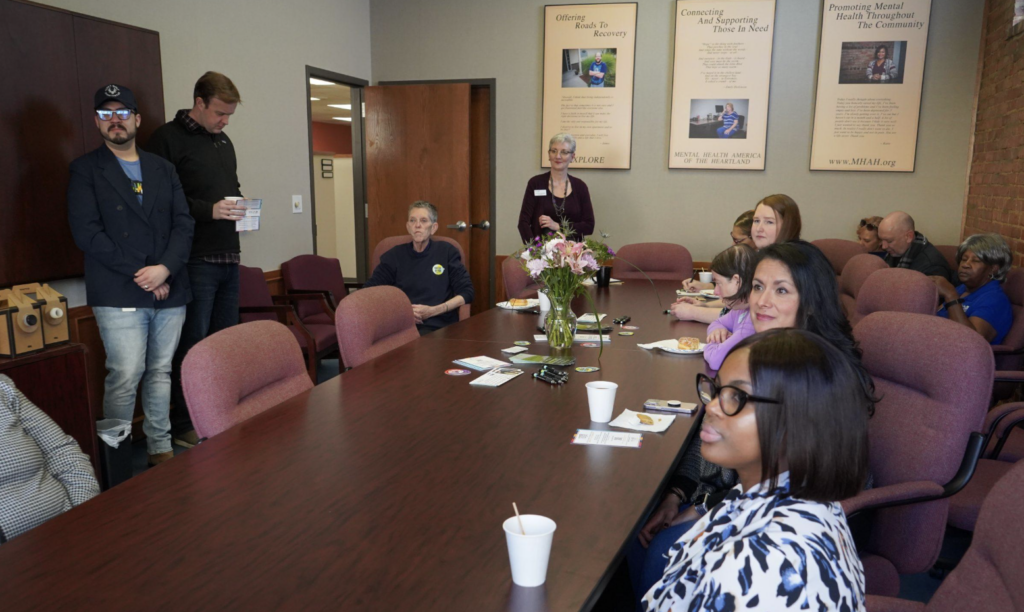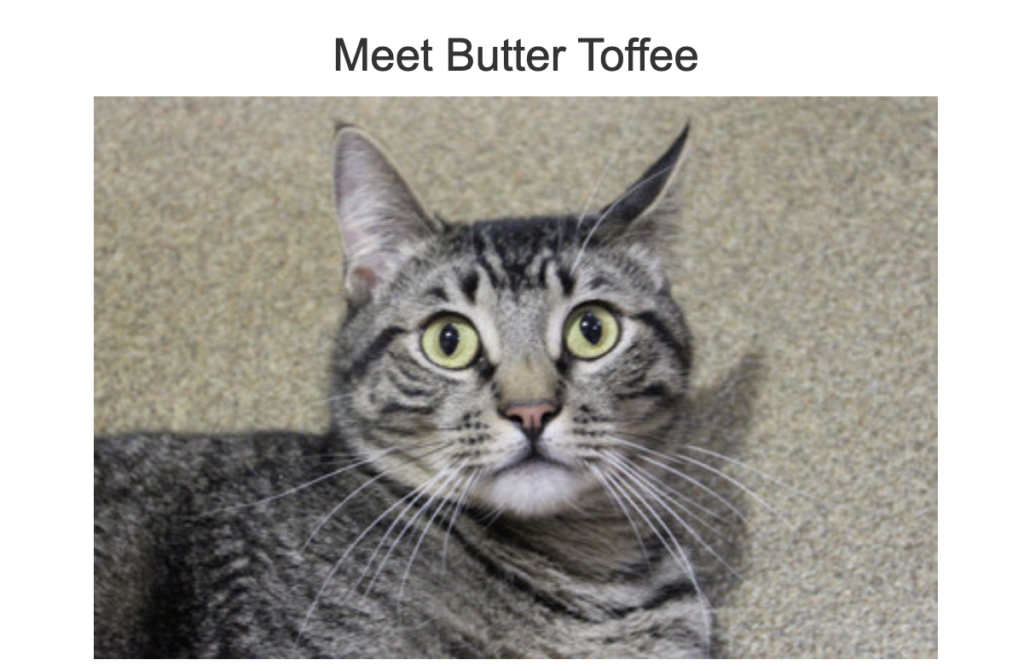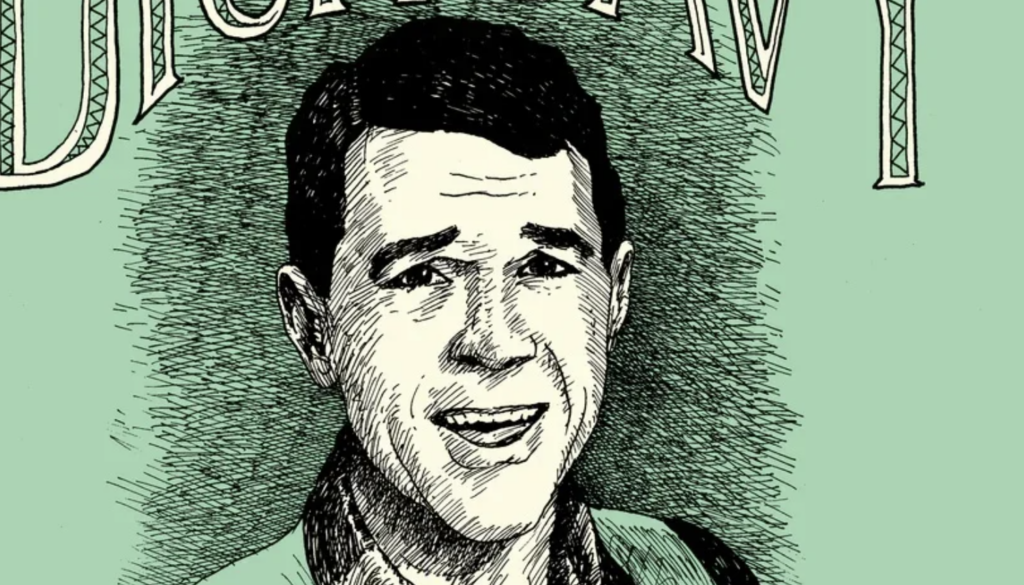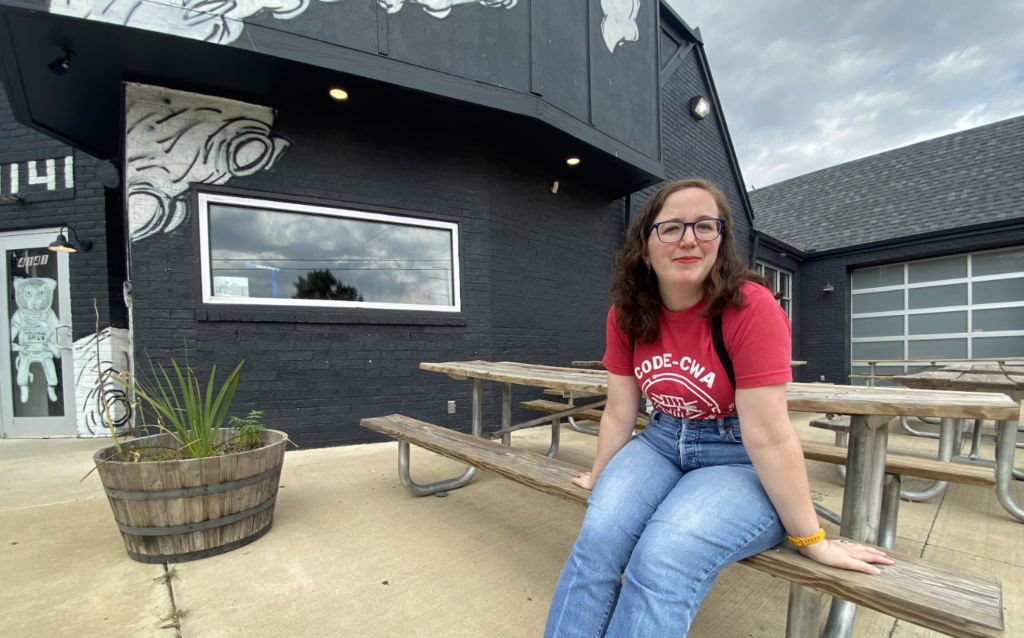Jason Klamm’s We’re Not Worthy charts an oral history of ’90s TV sketch comedy from the biggest names in the biz
The ’90s were the most fertile time for sketch comedy on North American TV. Shows like In Living Color changed the way TV looked forever, and Mr. Show with Bob and David took the sketch form and nearly perfected it. Every other sketch show of the era created some of the world’s biggest stars; the decade’s impact on comedy is undeniable.
While plenty of biographies and nonfiction tomes have tackled the history of film comedies, standup comedy, and even the erratic highs and lows of Saturday Night Live, rarely has any collection attempted to take a macro-level view of the entirety of ’90s sketch comedy—and certainly not from the perspective of more than 100 of the biggest names from the frontlines of that era’s comedy wars.
That’s where Jason Klamm comes in.
Klamm, a podcaster known for a decade of interviews in the Comedy on Vinyl podcast, is set to release We’re Not Worthy—an in-depth history of ’90s TV sketch comedy, featuring the dozen or so heavy-hitters of the decade like Kids in the Hall, The State, and Upright Citizens Brigade. It also covers the other dozen that didn’t last as long, but still gave us some of our biggest film and TV stars.
With a foreword by The State‘s David Wain, and 150 interviews with people like Carol Burnett, Mike Myers, The State’s Kerri Kenney-Silver, Bob Odenkirk, Tommy Davidson, Bruce McCulloch, Marsha Warfield, Kevin Nealon, Julie Brown, Adam McKay, Penelope Spheeris and Robert Smigel, We’re Not Worthy is the definitive history of ’90s sketch comedy from the people who were there.
We’re Not Worthy releases on September 12, 2023, via 1984 Publishing.
The Pitch sat down with Klamm to discuss the icons of an era, the worship of the odd, and what it takes to get Bob Odenkirk to call you back.
The Pitch: Where’d this book begin?
Jason Klamm: Well, originally I pitched Comedy on Vinyl, my podcast but in book form. I did that podcast from 2011 to 2021, so about ten years or more of making that.
You certainly have the research material there, right?
Yeah. And I still hoped to do that book. But like, we winnowed it down. I started with the idea of the history of all sketch comedy or a history of sketch albums. For the record, I did not know Keegan-Michael Key had done his podcast, or was turning that into a book, which is coming out around the same time as my book, but that is also a history of sketch comedy. It’s cool to know that he’s as obsessed with the subject matter as I am. So I went with a smaller niche scope of ’90s TV sketch comedy, because that’s what I grew up with. I was assured that’s still in the zeitgeist, and I’ll trust anyone who tells me that.
How many of the subjects from this book came from your time on the podcast?
Oh so many of them, and then they offered me connections to other people. I had some incredible volunteers from folks I’d never met before either. Futurama’s Patric Verrone used to write for The Simpsons and was once the head of the WGA. He got me so many interviews, including with folks who don’t usually do interviews. The first interview I did was someone I hadn’t known previously, named Jim Wise. He was a Groundling but folks probably know him best as the coach on Even Stevens. I knew him from Groundlings’ one season TV show run. Part of the book is about the theaters that all this sketch comedians come from, and they all come with amazing stories.
What was the journey that you hoped to explore via this book? Were there questions you wanted to answer?
It surely started from a place of “I like these shows, give me a reason to rewatch them.” I remember them fondly and ’90s sketch was so important to me finding my path and my creative pursuits. It’s the last heavy decade of comedy before the internet became a thing, with uploading videos to non-centralized locations and eventually YouTube. There were so many careers launched via this system and then suddenly the format and its medium had evolved or disappeared, and so its fascinating and worth examining what was created in this system and then what happened when this specific pipeline was closed. The ’90s are a symbolic end of an era.
There’s also this DIY ethic within sketch and I think it inspires creativity while also lowering the bar for entry. There isn’t a lot of gatekeeping when what you make is visually obvious that all anyone needs to do to become a part of this is literally build it for themselves. Seeing sets or filming that looked cheap was both a choice but also a necessity, and it broadcast a sense of openness. You could point at the screen and say “I could do that.” I know, because I did that too. It was approachable to people.
As happens with any deep dive project, you’ve spent a year here living and breathing sketch comedy. That really shows you the limitations of a subject you’re studying, and also broadcasts a lot of highs and lows. After writing this history, how do you personally feel about sketch? Do you like it more or less now that you’ve tried to paint a complete picture?
If I go back to my Comedy on Vinyl podcast, that’s like 11 years of work and at the end I still love comedy albums. You can’t make me stop loving them, no matter what. But let’s be real: a lot of them are shit. Comedy albums are incredibly hit or miss and, limited to those only pressed to vinyl, looking back with a modern lens? They’re mostly terrible.
View this post on Instagram
But the end result is that now I’m just wildly picky about comedy albums. The last one I got was probably a Jimmy Pardo album, because the man is reliably funny and I know he’s not a piece of crap human being.
But with sketch comedy I was mostly on a journey of discovery here. A lot of this was brand new material to me, and sometimes shows that almost no one has seen. The wildest thing was finding ’90s sketch shows that remarkably had, like, zero sexism and zero racism. It’s a tall order to ask for zero sexism in sketch comedy, especially in the ’90s, and yet here it was. There are some shows that managed longer runs with almost nothing I think we would consider problematic today. Shows today can’t do that.
But there’s plenty of problematic to have to discuss. It is ’90s television sketch comedy. How do you approach that?
I don’t approach it with any hand holding. I don’t do any explaining it away as simply the product of a different time. You are going to find some terrible shit, and there’s just no way around that. I love Kids in the Hall but there’s straight-up blackface in some episodes. The State doesn’t have that but it steps on some cultural boundaries that it should not be stepping in. So it has to be addressed. But even within that, there are limits where I’m aware that it’s not even my place to be weighing in because I’m not the one being affected directly.
There should probably be some shared standard for writers dealing in the cultural minefield of humor history, because culture moves at a much different speed than comedy—sometimes that’s the point of the jokes and sometimes that’s the source of unfortunate byproduct.
It’s complicated and I make my feelings very clear, which is maybe the only way to clear the room and do something productive with the rest of this. The subtitle of this book relates to how sketch comedy changed the face of television, and they did. Literally, this is where representation starts to shift the landscape. How TV look and sounded started to shift because of how comedy was pushing it into new territory.
What was the interview for this that you dreamed of bagging but you thought it might be a moonshot?
Well, I will tell you from the beginning for anything, no matter what I do, it’s always like, it’s always Mel Brooks. And that didn’t happen. But for this I from the very beginning. One of the dream ones was absolutely Bob Odenkirk. And Carol Burnett, and somehow got them both. I did not expect that to happen at all. And Carol Burnett agreed so early on that I think she’s the reason that I got all the other interviews. I’m almost certain of it. People saw her name in the pitch and they’re like, Yes, please. Absolutely.
Although one person who later—I can’t say who—but this one person turned me down until she found out about Carol Burnett being involved. They wanted me to set up lunch for the three of us, and would agree to do the book if I did that. Yikes.
Bob Odenkirk was the one I was waiting for because I could tell he was going to be sorta a big dork about breaking down sketch comedy and how it works. I knew we would have a really engaging conversation about the basic mechanics of comedy, and we had a very honest talk about Run, Ronnie, Run which is one of my favorite parts of the book
Did anyone offer you a small amount of time and then wind up talking to you for considerably longer?
Most stuck to their hours. Both Mike Myers and Adam McKay got really excited about the conversation and stayed on longer. Bob Odenkirk was great. You do the quick math on these things and realize these folks are highly paid actors and writers, but they’re giving you their time. It forces you to be a better interviewer, I think, having that kind of pressure and knowing this is probably your once chance ever to pick this person’s brain. I took a lot of chances in what I brought up, and it paid off to give people this opportunity to re-examing very niche moments in their careers.
What was the biggest surprise you encountered while working on the book? Or what will be the biggest surprise for readers?
Just discovering the shows that didn’t exist but almost existed. The sheer number of shows actually made is pretty staggering too. I talk about the pilots that were made or not made. The Onion had a pilot in 1994 which is honestly fascinating. There’s also a lot of theories I dive into about the evolution of the form and entertainment. If you’re younger now, you probably don’t know how sketch lead to what you grew up with on YouTube, and you might know a few things from SNL but you probably don’t know how in the ’90s they were trying to put sketch everywhere. A lot of misses, a lot of weird ephemera.
What’s your hands-down favorite tidbit from the book?
I spoke with Alan Ruck about doing audition tapes, and he’s just this incredibly humble man, talking to me while he’s shooting on Succession. There’s someone who told me about having to struggle and hustle like everyone else, even though he had Ferris Bueller’s Day Off under his belt. I don’t know why I keep coming back to the whole 9Lives thing, but Adam McKay’s whole career with the quickest jump from writer to head-writer wouldn’t have happened without Morris the Cat. It’s impossible to sift through. To answer your question, I need to mentally flip through 2.5 million words of transcribed conversation. It was a helluva thing to put together.
We’re Not Worthy is available for pre-order now, and releases everywhere Sept. 12, 2023.







